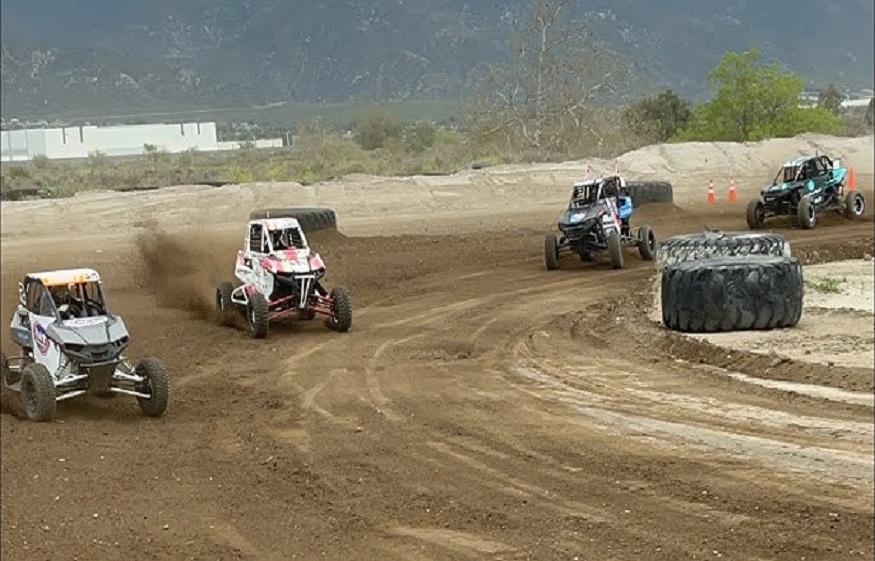Picture yourself behind the wheel, dust clouds billowing behind you as your vehicle tackles the unforgiving terrain of an off-road race course. While the roaring engines and modified vehicles might capture immediate attention, it’s the psychological warfare happening inside each driver’s mind that often determines who crosses the finish line first.
This exploration into the mental aspects of off-road racing will reveal how successful racers develop the psychological resilience needed to excel in one of motorsport’s most demanding disciplines.
The Unique Mental Demands of Off-Road Racing
Off-road racing demands exceptional mental adaptability, as racers face constantly changing terrain, weather, and mechanical challenges. The unpredictability creates a complex mental puzzle that must be solved at high speeds. Motorsport psychology studies show off-road racers experience higher stress hormone levels than circuit racers, due to the increased number of variables. This cognitive load requires specialized mental training. Professional off-road racers report up to 60% more decision fatigue than circuit racers, making mental endurance critical for success.
Building Mental Toughness Through Preparation
Mental toughness begins long before race day. Off-road racers study course maps, weather patterns, and past race data to build confidence for unexpected challenges. Sports psychologists emphasize mental rehearsal, by visualizing scenarios, racers create neural pathways for quicker, confident decision-making, reducing anxiety and improving performance. Research shows that those who practice mental mapping for 30 minutes daily experience a 40% improvement in reaction times under pressure.
The Role of Emotional Regulation
When you’re pushing through difficult terrain at high speeds, emotional control becomes paramount. The ability to maintain composure while managing the adrenaline surge of competition often separates elite racers from the rest of the field. Successful off-road racers develop what psychologists call “emotional granularity” – the ability to identify and regulate specific emotional states rather than being overwhelmed by general stress or excitement. Recent research has identified that top performers in off-road racing demonstrate superior emotional regulation abilities, particularly in their capacity to maintain focus during equipment failures or unexpected course changes. These racers typically employ a combination of breathing techniques, cognitive reframing, and mindfulness practices to maintain optimal arousal levels throughout the race duration.
Strategic Decision-Making Under Pressure
Off-road racing requires constant strategic calculations. You must balance speed against vehicle preservation, risk against reward, and aggression against patience. This decision-making process becomes challenging when fatigue sets in during longer races. Recent studies of successful off-road racers show they break down races into manageable segments, setting specific goals for each section. This approach, known as chunking, helps prevent mental overwhelm and allows for more effective decision-making throughout the race duration. Elite racers often create detailed mental checkpoints every 50-100 miles, using these markers to reassess strategy and maintain focus on immediate objectives rather than becoming overwhelmed by the total race distance.
The Impact of Team Dynamics
Off-road racing exists as a team competition although drivers operate alone behind the wheel. Success in off-road racing depends mainly on the psychological strategies used among the driver and co-driver and support crew. Research shows teams that practice scenario-based training together perform better under stress and make more effective decisions. Regular psychological preparation reduces communication errors by 45% and improves problem-solving efficiency by 30% during mechanical challenges. Clear communication and trust-building are essential for mental readiness and optimal performance in critical moments.
Managing Race Day Psychology
When race day arrives, your mental state becomes as important as your vehicle’s mechanical condition. Successful racers develop pre-race routines that help optimize their psychological state. These routines might include:
- Breathing exercises to regulate heart rate and focus
- Progressive muscle relaxation techniques
- Specific visualization sequences
- Brief meditation or mindfulness practices
Studies indicate that racers who maintain consistent pre-race routines show lower levels of cortisol (stress hormone) and report better focus during the race. Psychological assessments of elite off-road racers reveal that those with established pre-race routines experience up to 35% less pre-race anxiety and demonstrate more consistent performance throughout the event.
Recovery and Mental Reset
Off-road racing creates psychological obstacles that continue after each competition. To advance in off-road racing one needs how to analyze and restore their mental state following every competition. Athletes must study their performance data while being detached emotionally followed by learning from mistakes that avoid dwelling on past mistakes while staying motivated through wins and losses. Sports psychologists working with professional off-road racing teams have identified that the most successful racers typically spend 2-3 hours post-race analyzing their mental performance, using structured debriefing protocols to extract valuable lessons from each experience. This systematic approach to psychological recovery has been shown to accelerate skill development and reduce the likelihood of repeated mistakes in future races.
Practical Applications for Aspiring Racers
To develop your mental toughness for off-road racing, consider implementing these evidence-based strategies:
Establish a regular mental training routine alongside your physical preparation. This might include daily visualization exercises and stress management techniques. Research suggests that dedicating at least 15% of your total training time to mental preparation can significantly improve race performance.
Work with a sports psychologist who understands the unique demands of motorsport. Professional guidance can help you develop personalized coping strategies and performance enhancement techniques. Studies show that racers who receive professional psychological support demonstrate up to 25% better stress management during competitions.
Practice decision-making under pressure through simulation training. This could involve using racing simulators or participating in controlled training scenarios that mirror race conditions. Regular exposure to high-pressure situations in controlled environments has been shown to improve real-world performance by up to 40%.
Mastering the Mental Game of Off-Road Racing
Competence in technical skills and machinery functions equally depends on mental strength for success in off-road racing. A powerful state of mind acts as the determining factor between obtaining podium finishes and having missed finishes completely. The development of your mental toughness and emotional control and strategic planning abilities can boost your performance levels. Like physical strength, mental fortitude builds through consistent practice and dedication. As you progress, prioritize psychological preparation alongside technical training. Ultimately, the dust trails you leave behind reflect not only your driving skills but also your resilience.

